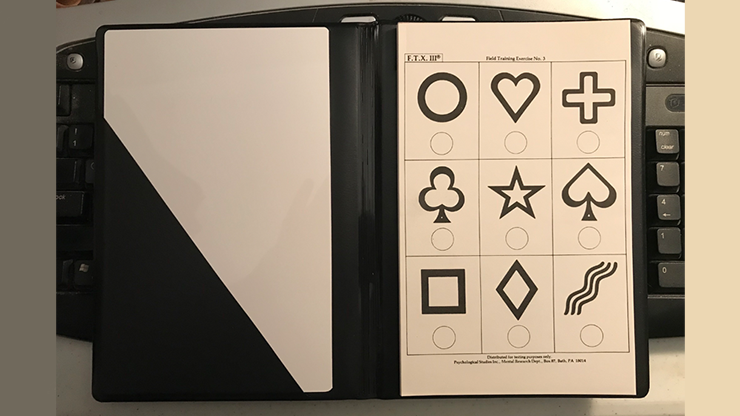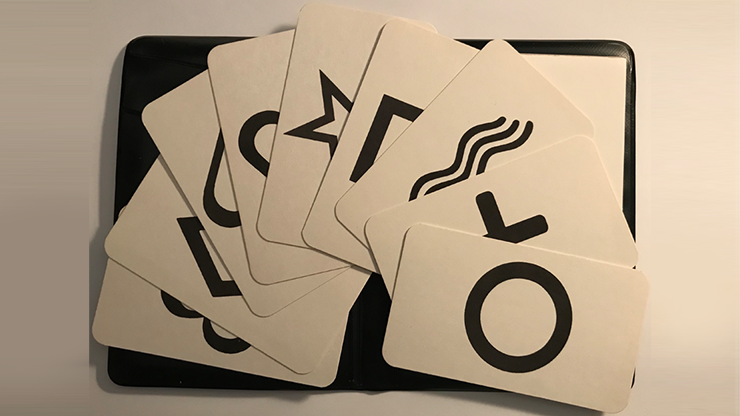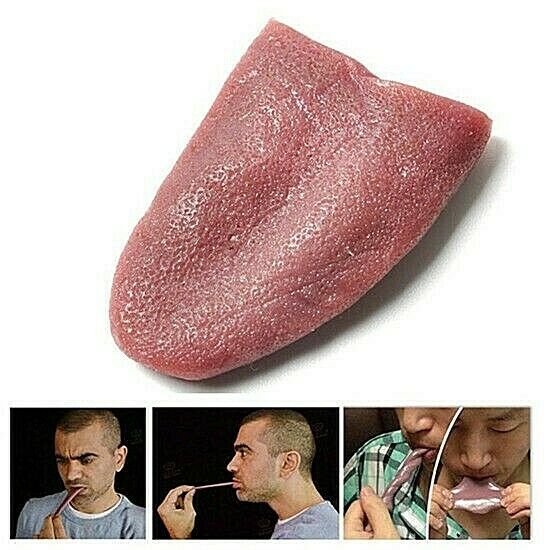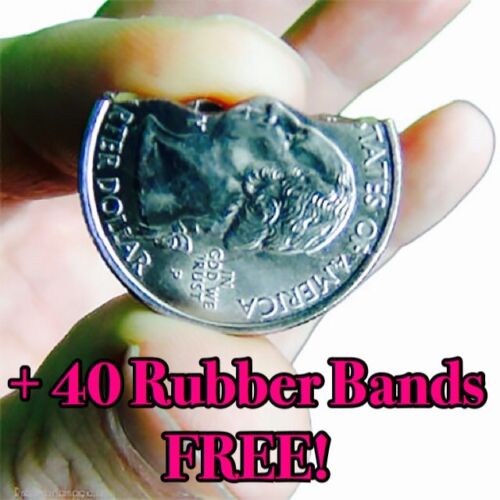-40%
Mark Strivings Presents Rhine 2000 by Ray Piatt
$ 34.32
- Description
- Size Guide
Description
Mark Strivings presents...Rhine 2000
by Ray Piatt
And with this rather short-sighted title, we have a unique piece that takes an old mentalism demonstration in a whole new direction.
Ray first released this piece (under this name) sometime in the late 80's. I'm sure that the title seemed plenty ahead of its time back then. So, you can ignore the title if you'd like.
What Ray was really trying to portray was an extension of Dr. Rhine's famous symbols, used in a way that seemed to allow for one of Ray's famous "Field Exercise" demonstrations.
The purpose of these pieces is to apparently have materials that you could use as an ESP exercise, or 'test' - ala Dr. Rhine - in virtually any situation. And they worked beautifully in this regard.
With
Rhine 2000
, Ray has expanded the set of classic ESP symbols - circle, cross, wavy lines, square and star - to include four more symbols, in this case the four suits in a deck of cards - a Heart, Spade, Diamond and Club - for a total of NINE symbols.
Here's the basic effect.
A chart of the nine symbols has been numbered at random (1-9, but out of order) by the performer. A set of nine cards, each bearing one of these ESP symbols, is mixed and dealt into three piles. Three spectators are invited to take one of the piles of their choosing. A small envelope is handed to a fourth person.
Each of the three spectators holding symbol cards is invited to choose one. The fourth spectator is handed small white board and dry erase pen. The first spectator reveals their choice of symbol, and it in turn is compared to the number on the cart. That number is recorded by the spectator with the white board. This is repeated with the second spectator and their number is written next to the first. This is again repeated with the third spectator, creating a random three digit number.
This entire process is repeated again with each of the three spectators selecting one of their two remaining symbols and creating a random three-digit number, which is recorded beneath the first three-digit number. Finally a third three-digit number is created with the three remaining cards.
The three-digit numbers are then added together to reveal a random grand total, generated by your three helpers.
Only then is the envelope that was handed out earlier opened up, to reveal a folded piece of paper containing the exact same total!
Included with this amazing set of props is a small vinyl folder which contains a pad of paper to use with any effect you'd like and also acts as a holder for the nine ESP symbol cards, each of which has been printed on heavy card stock (1st pic above). Also included is a larger vinyl portfolio which contains the symbol charts (a padded stack of about 50 sheets, easily replenished, and I explain how in the extra set of instructions, more on that in a moment) and the special 5" X 8" white board which is amazingly well produced (2nd pic above). The folio itself is embossed with the words "Psychological Studies Inc., Mental Research Dept." along with an address on the front (difficult to see in the 3rd pic above, but it's perfectly done). You even get the perfect dry erase pen to perform with. Also included are three sets of instructions from Ray (he was well known for constantly updating props and handling) as well as an additional set of updates and instructions from Mark Strivings, including his sure-fire, unbelievably easy method for doing this effect that kills. In fact you could easily combine Ray's method with Mark's to create a multi-phase demonstration that is impossible to backtrack.
As alluded to above, there are aspects of this that, depending on how you perform this, you will have to replenish if you want to perform it as Ray did and as Mark does. You can give away the ESP symbol chart at the end of the performance if you'd like, although it is not mandatory. But if you do want to give it away at the end of the performance, not to worry, Mark explains exactly how to do this in such a way that you can easily and inexpensively set yourself up for a lifetime of performances. As it is, you're set for your first fifty times through anyway, at the very least. It's a great running start.
Some additional points to consider: The smaller folio holds the cards (you can see them peeking out of their pocket in the pic) but also holds a 3 1/2" X 5" gummed pad of paper which can be used for anything you'd like. The pad has nothing to do with the effect, although the folio itself is an integral part of Ray's method for the effect. The white board is about a thick as 3-4 pieces of paper and somewhat rigid. For those who could use a small white board that takes virtually no room, yet is large enough even for parlor work, this is a gem all by itself. You can see the whiteboard in the pic along with the pad of symbols charts. As noted in the write up above, there are about 50 of these charts that come with the set, and Ray recommends that you give the chart away at the end of the demonstration. In reality there's no need to do that, so you are set for life with nothing to replace, ever. Also, as noted above the expanded set of ESP cards opens up a world of possibilities. None are explored in the accompanying instructions, but they are there nonetheless. Given this set of props, for the creative performer there's an entire act here, not just the singular effect itself!
This is a beautiful set of props that will last you for years of use with only minimal care, and the effect is different than anything your audiences are likely to have ever witnessed before. Plus, the additional ESP cards offer endless possibilities on their own or combined with the original five card set.
You get it all - the nine sturdy ESP symbol cards, the small folio that houses them, the larger folio, the pad symbol charts, the 5" X 8" whiteboard, the dry erase pen and four sets of instructions and handling ideas.












